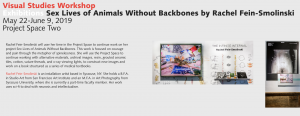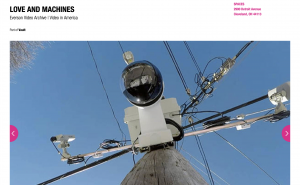Jul 16–Aug 17, 2019
Online Exhibition
-
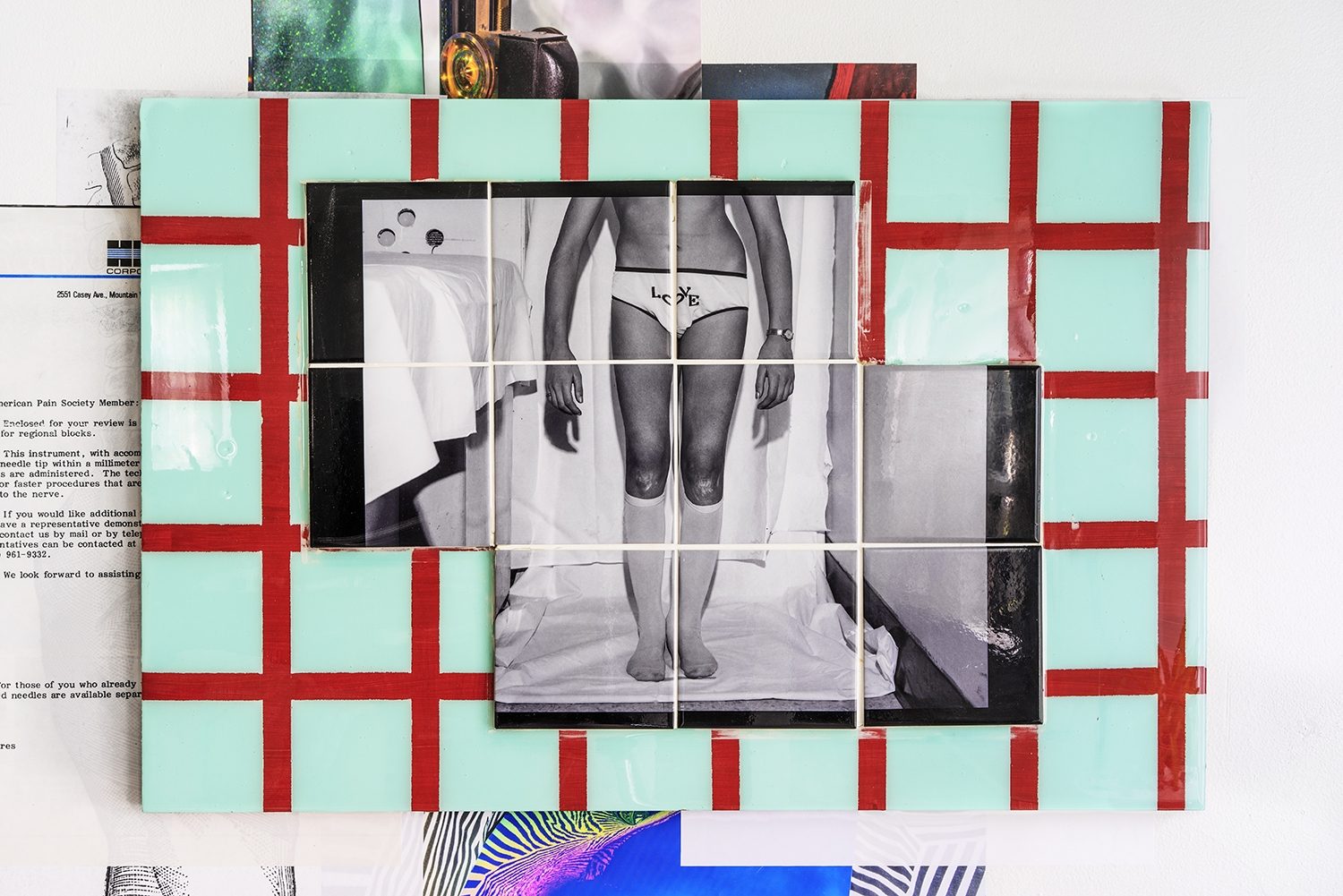
1/12: Love in the Scoliosis Clinic, 1971*, reproduced 2019, dye sublimation print on ceramic tiles, grout, resin
-
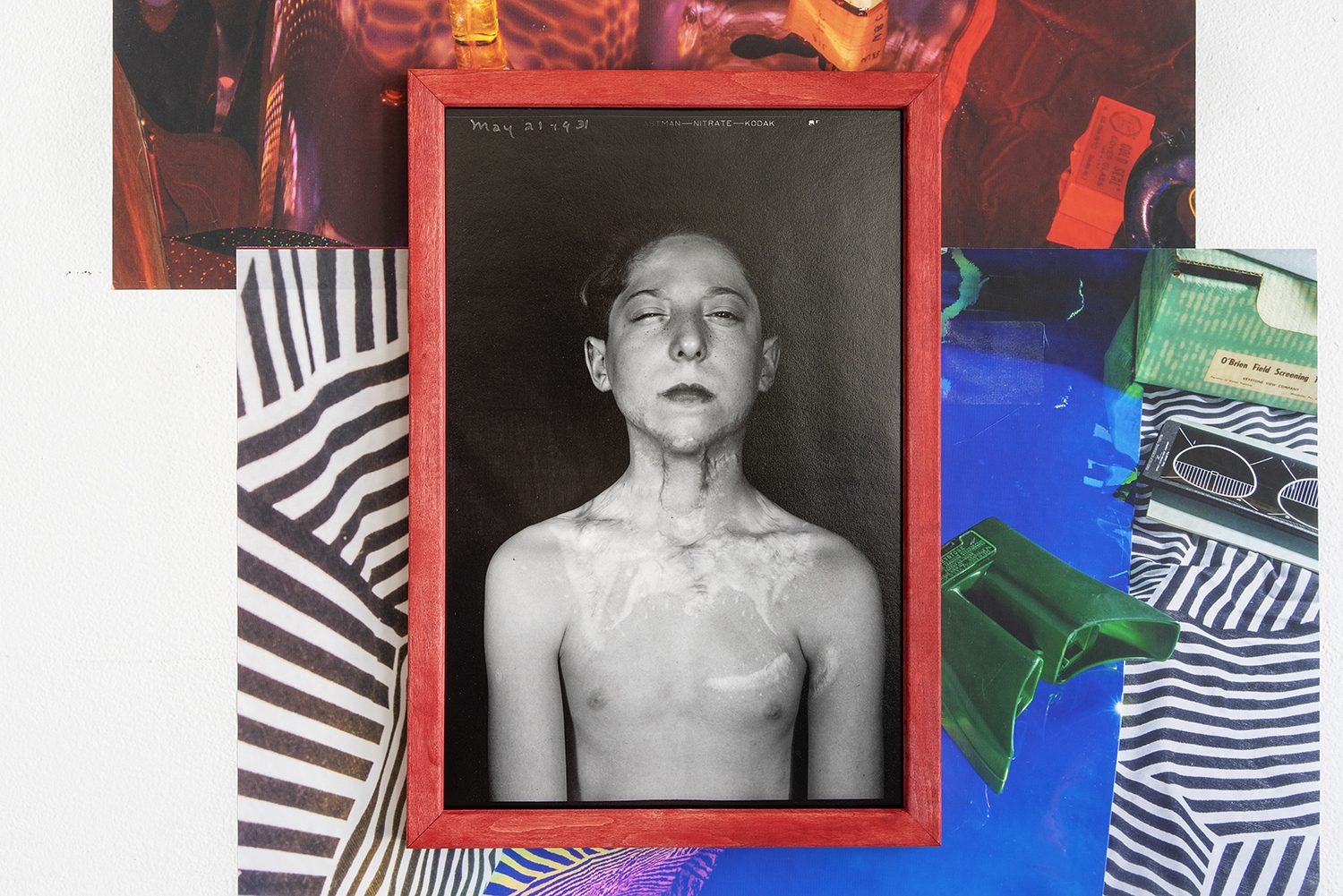
2/12: Post-Op Portrait, 1931*, reproduced 2019
-
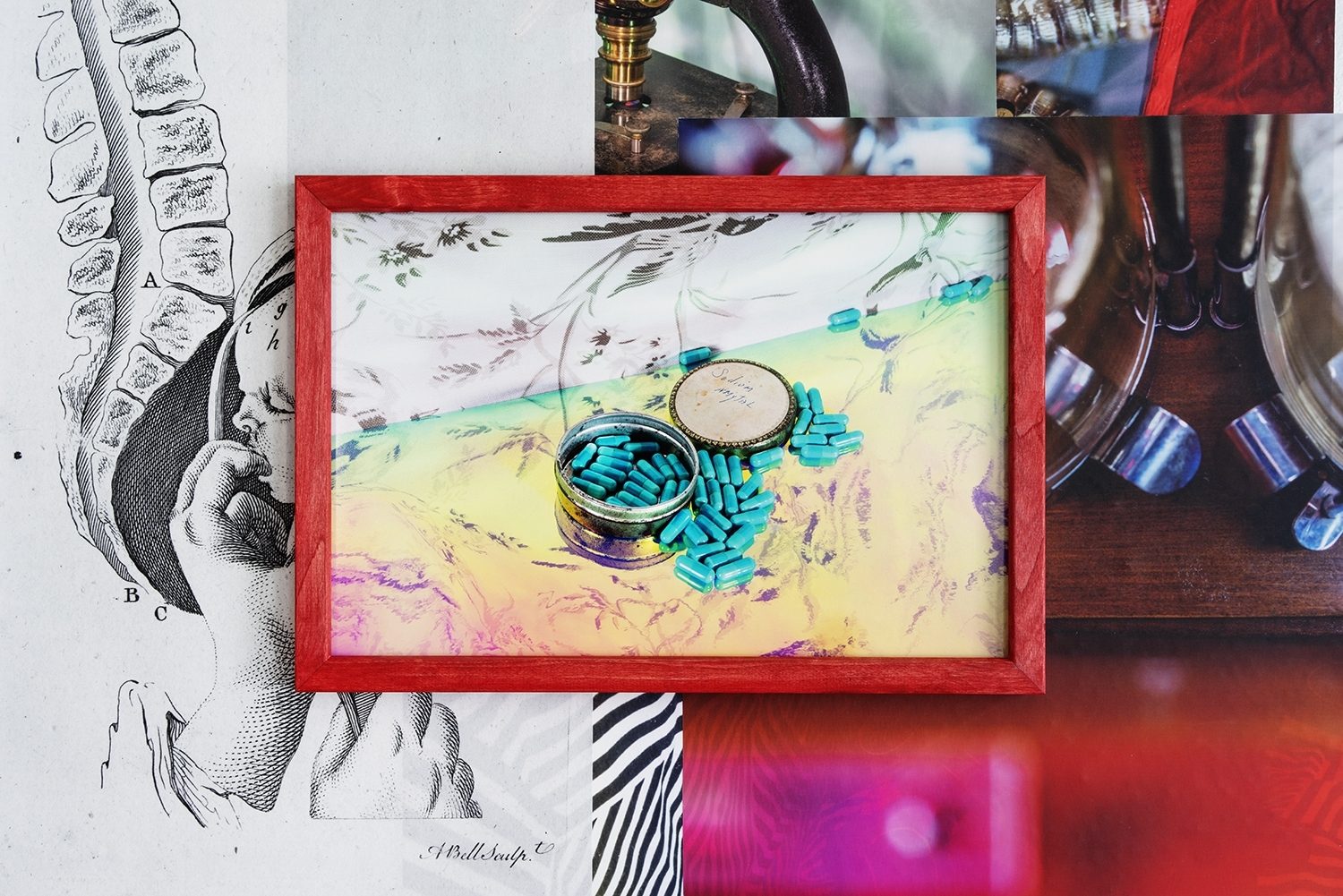
3/12: Sodium Amytal— Blue Heavens (barbiturate used as an early truth serum) found in medic’s first aid kit, used c. 1940*, photographed 2018
-
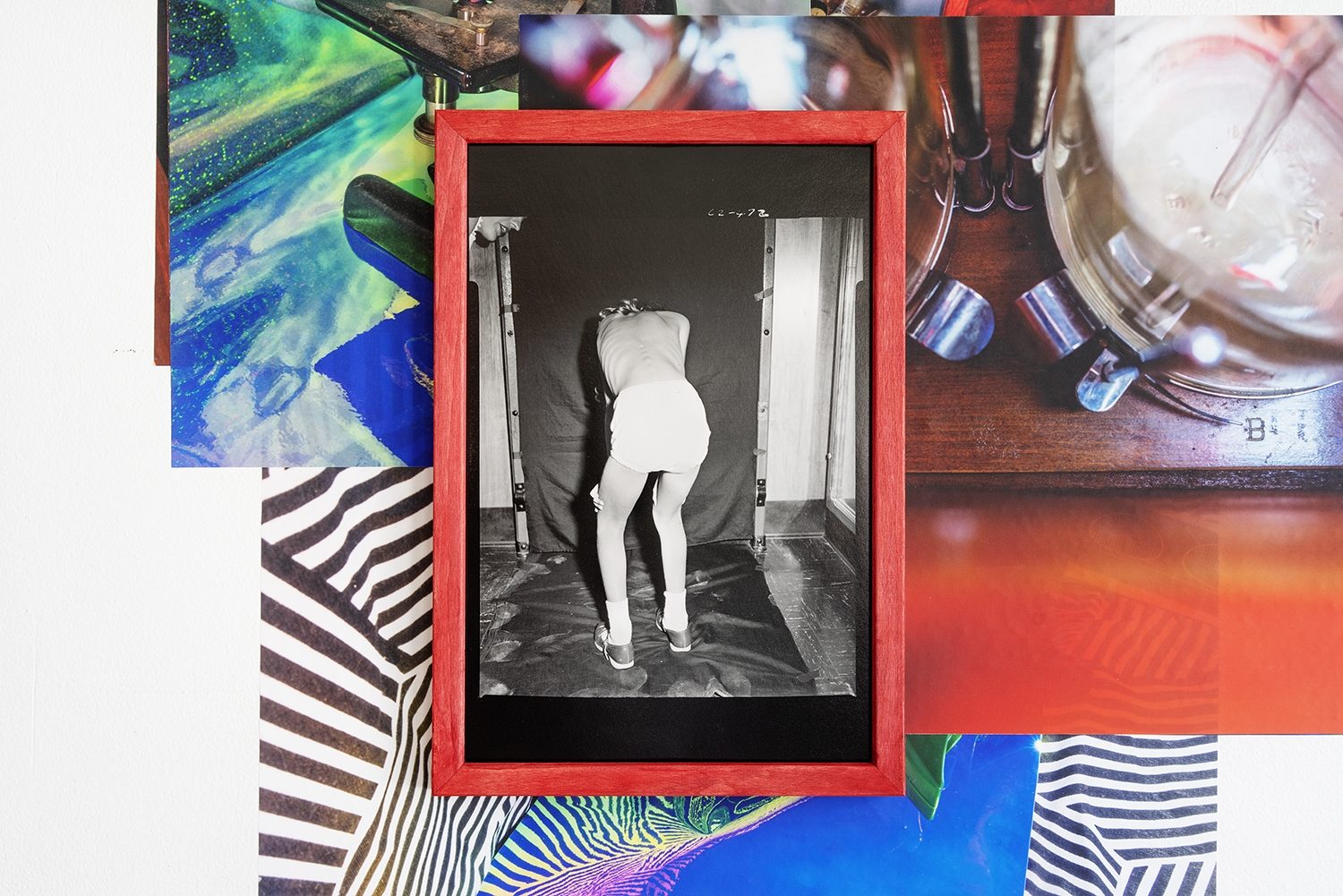
4/12: Clinical Photograph Illustrating Spinal Curvature*, 1962, reproduced 2019
-
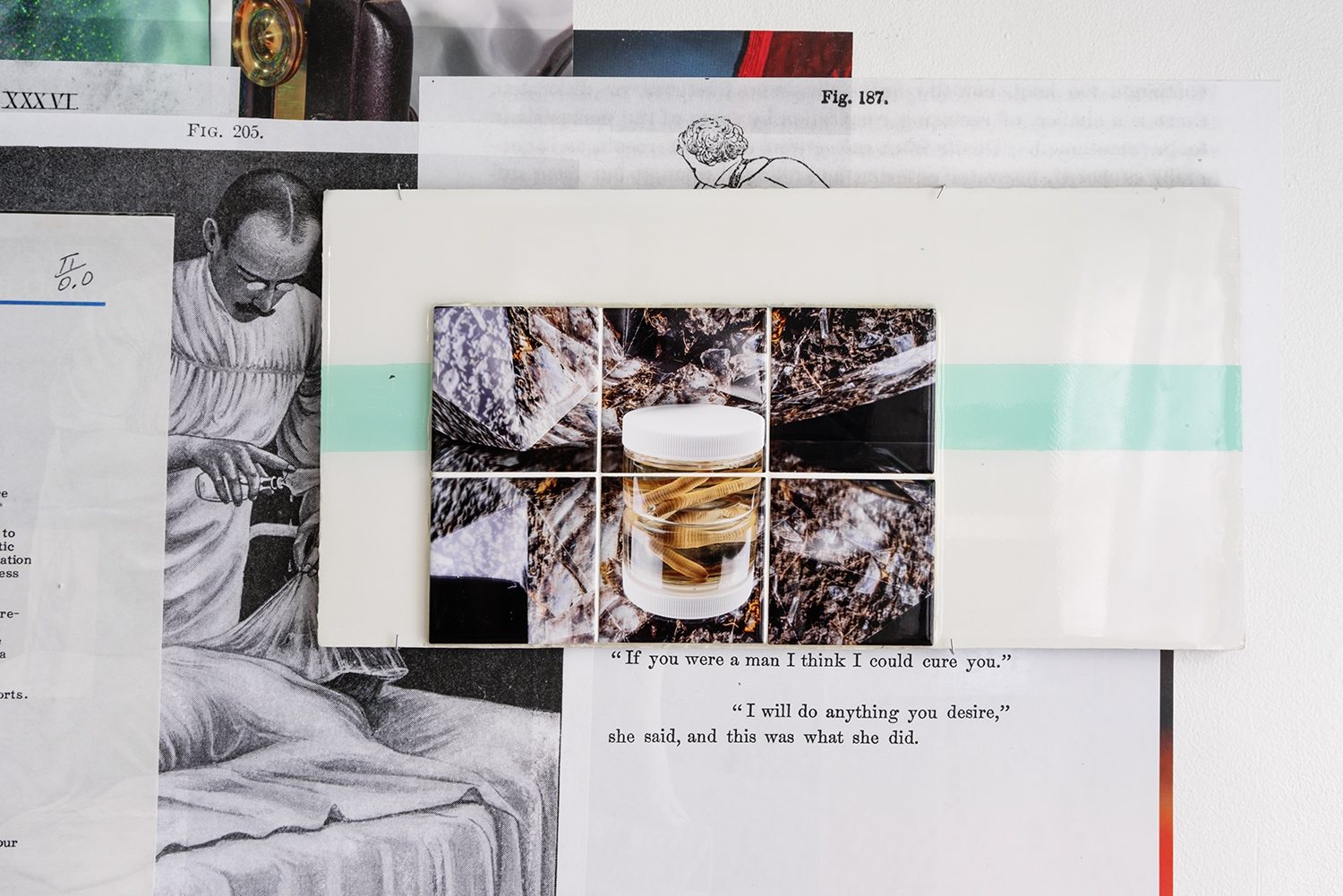
5/12: Earthworms have five Hearts and no Backbone, 2017, dye sublimation print on ceramic tiles, grout, resin
-
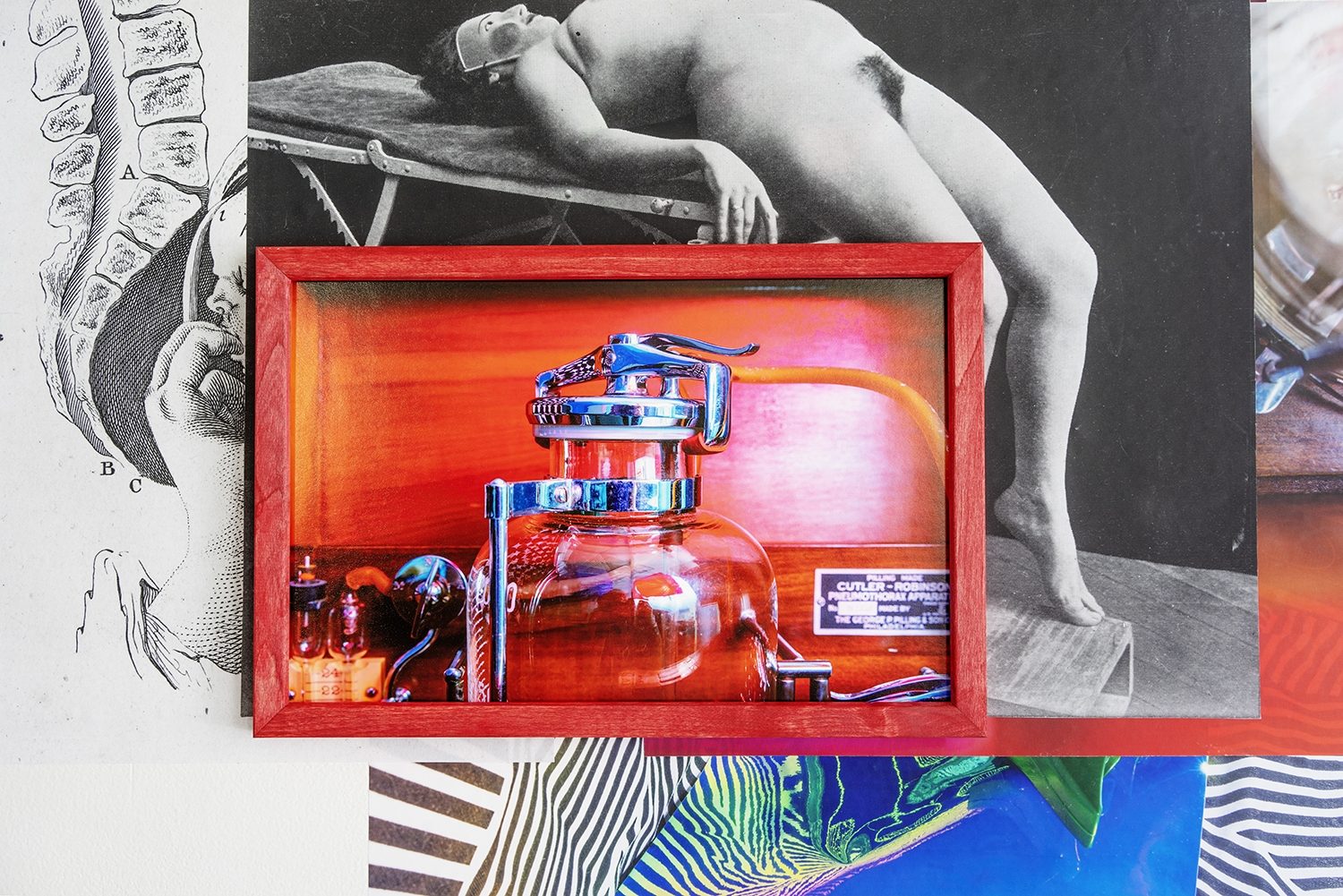
6/12: Cutler-Robinson Apparatus for Inducing Pneumothorax in Tuberculosis Patients*, 2018
-

7/12: Daphnia Magna— Advantageous Experimental Organisms, 2019
-
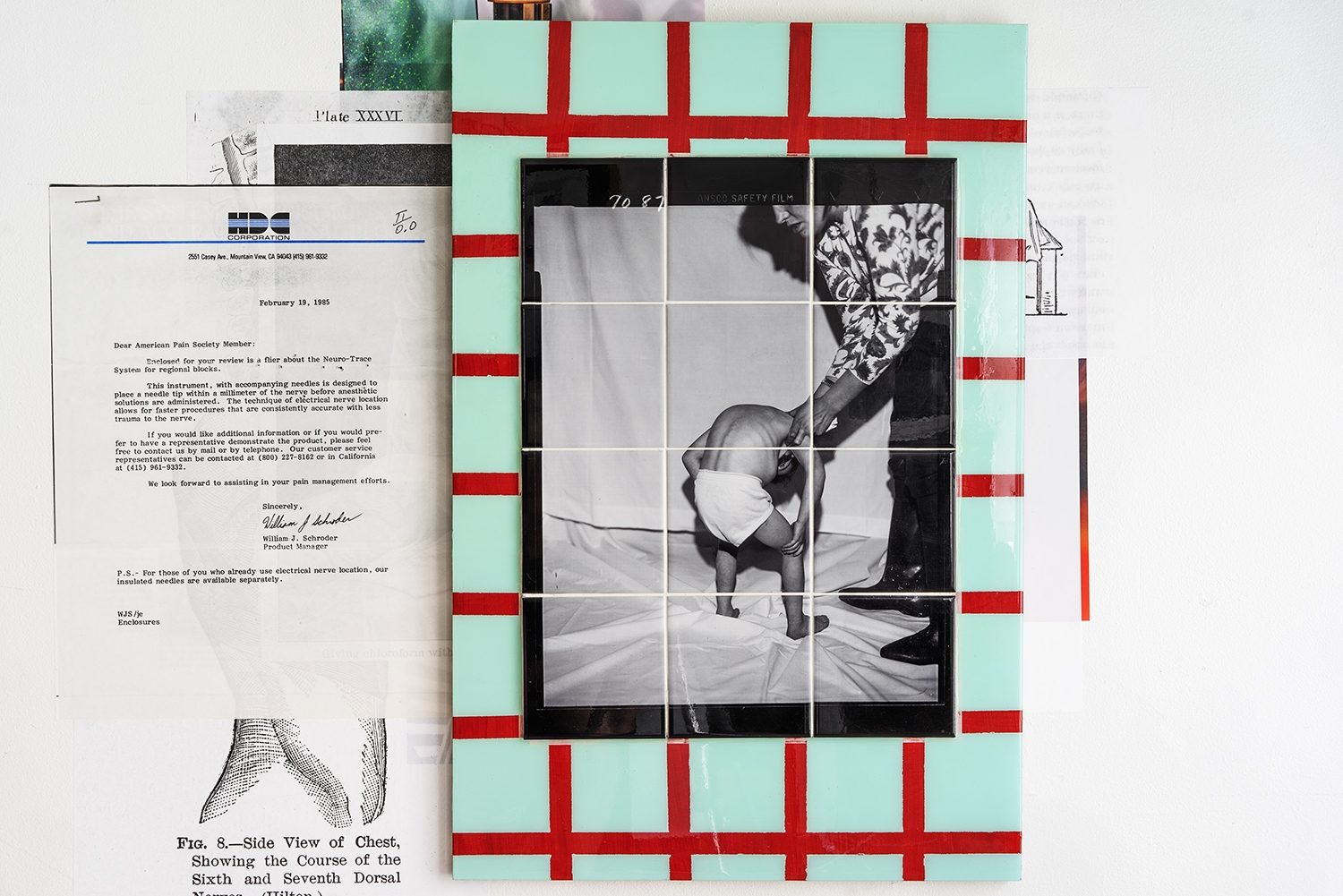
8/12: Clinical Photograph Illustrating Spinal Curvature, 1987*, reproduced 2019, dye sublimation print on ceramic tiles, grout, resin
-
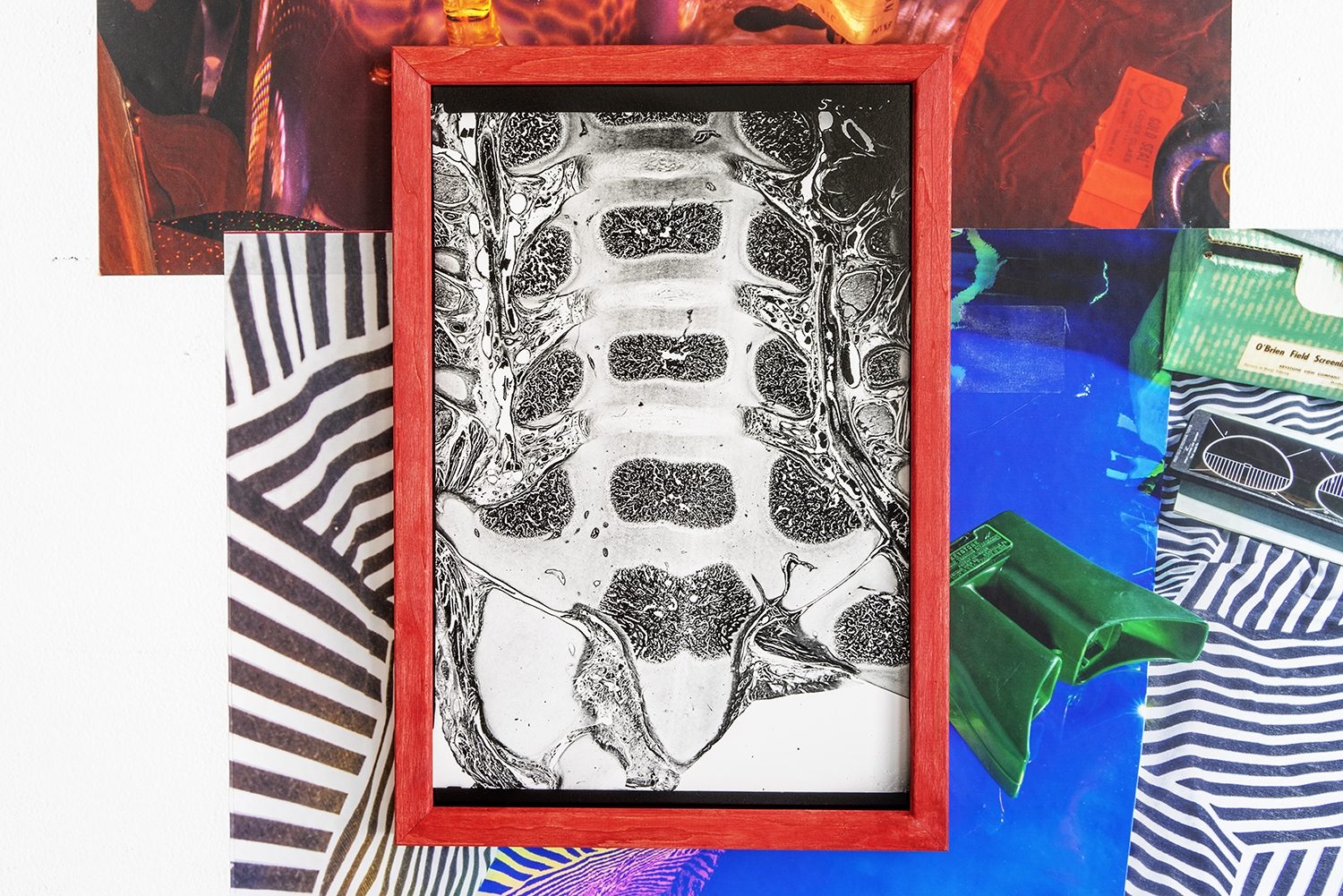
9/12: Diagnostic Image, 1954*, reproduced 2019
-
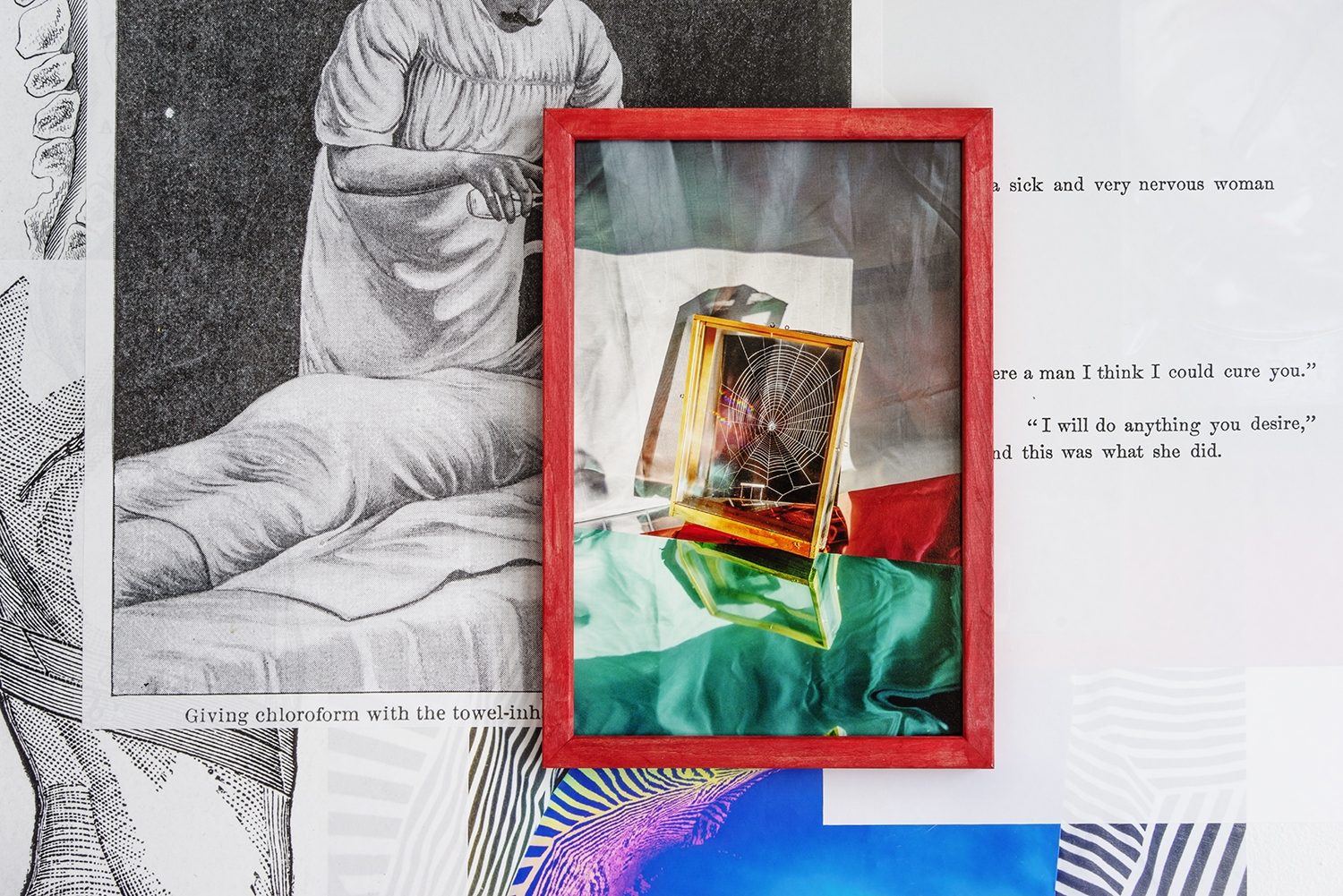
10/12: Object in Central Image found in the Collection of Dr. Ellen Cook Jacobsen, the first female instructor of the Dept. of Med. at SUNY Upstate Medical University*, photographed 2019
-
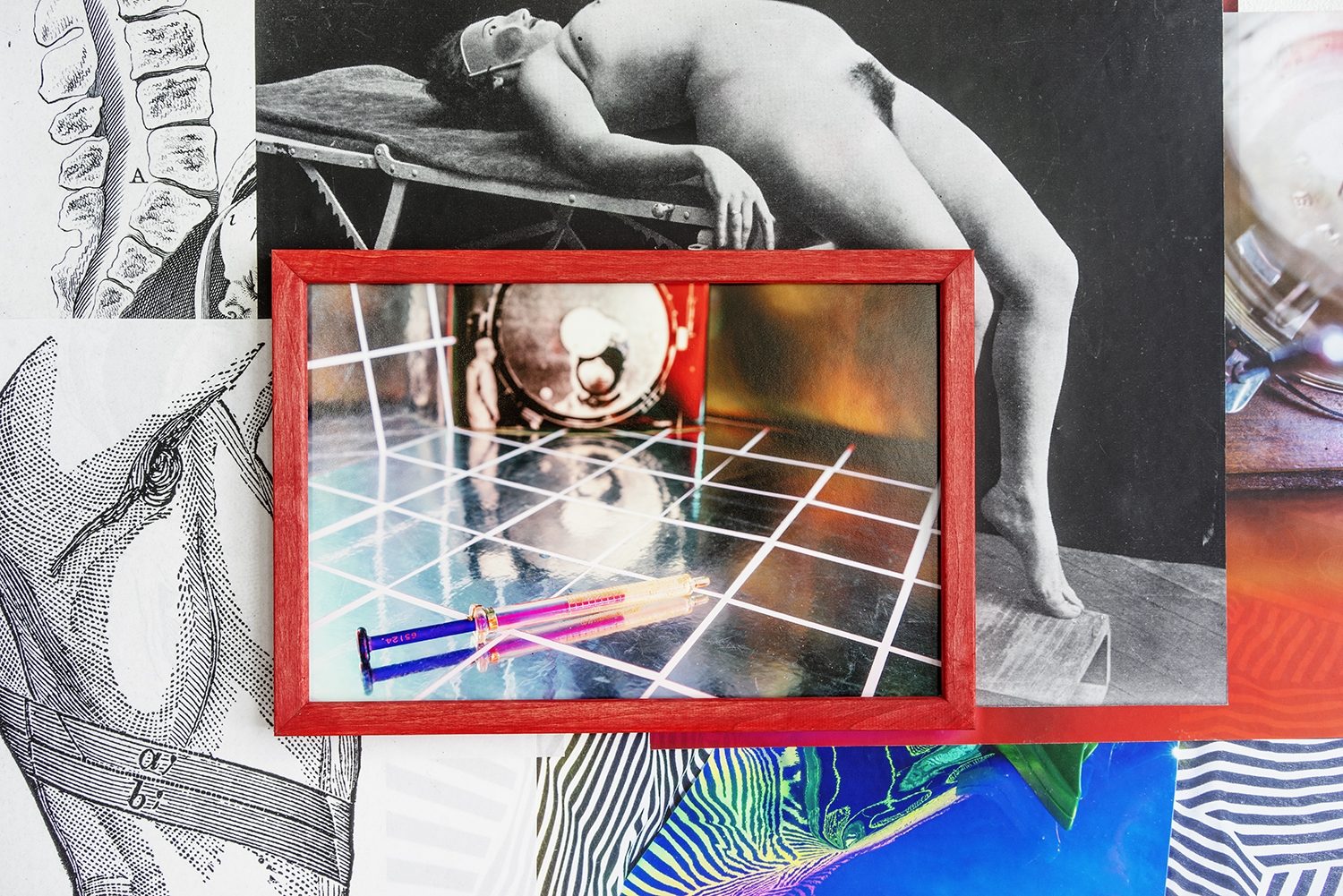
11/12: Glass Syringe from doctor’s bag c. 1970*, photographed 2018
-
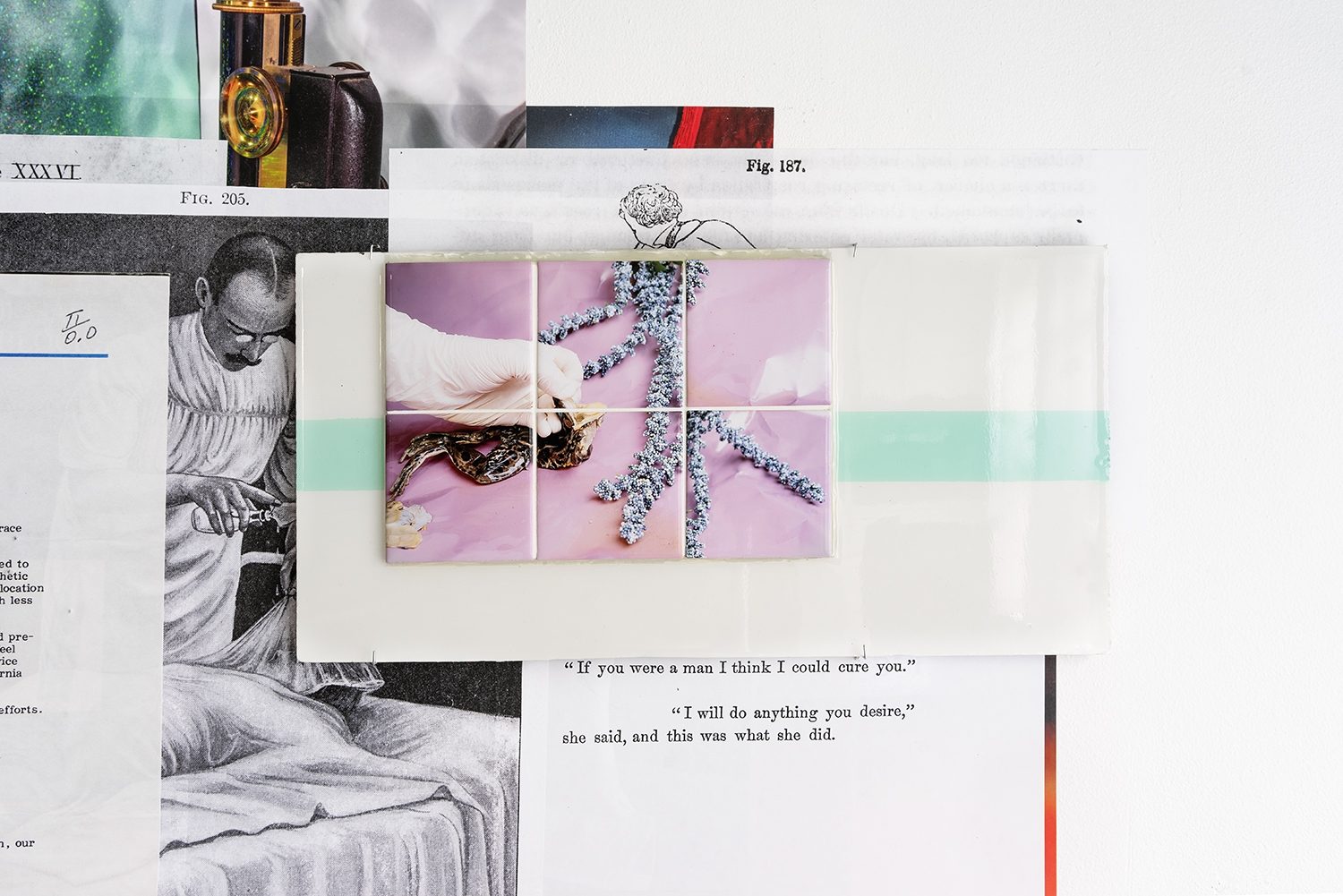
12/12: Dissection of a Frog, 2017, Dye sublimation print on ceramic tiles, grout, resin
Bio-medical exploration is a fantasy of objective visibility. To see is to know, and to know is to succeed. However, as there is no such thing as a purely objective gaze—observation is always tied to a host of psychological associations, to see is to concurrently project and consume. Using the sci-fi genre as a license to sublimate my scopophilic (visually indulgent) relationship with the aesthetics of science, I explore how knowledge is produced, documented, and disseminated in favor of assuaging the pain of others within the western health care system. Through photographs, videos, sculptures, and installations I deal with neurosis, gender and power dynamics in the bio-medical institution. Using archival images, simulated procedures, tableaux, alternative presentation methods, and set-building, I fetishize the surgical theatre, excavating hospital archives, and carrying out experiments. For more than half of my life, I have been in constant pain, from a degenerative disease. Through repeated doctors, diagnoses, and procedures I have become well-acquainted with the intimacy and delicacy of a doctor-patient relationship.
This autobiographical material is the root of an alter-ego, a caricature of a neurotic, intellectual hero. The alter-ego is constructed from a series of signifiers, as a Jewish woman, raised with a cultural identity that idealizes intellect to the point of fetishization. This is a stylized performance of a masculine archetype (yes, I am exploring what it means to be a woman through the usage of masculinity and its historical relationship to authority) used in science fiction. Inspired by both speculative fiction (e.g. Mary Shelley’s sublimation of self as the decidedly male Dr. Frankenstein) and the visceral details of medical history I play with tools until they become toys, and introduce them into installation spaces as props.
This body of work has multiple iterations. Presently: Sex Live of Animals without Backbones, The Prosthetic Practice for the Healing of Imaginary Wounds, A Science of Desirable/Detestable Bodies, and Referred Pain. The last of which I am currently working on. This chapter focuses on the history of the documentation of pain, and of privacy, through the use of photographs of patients from the 20th century that, prior to my introduction into the work, have only been made for, and looked at by doctors, scientific imaging techniques (e.g. x-rays, photomicrographs) clinical notes (to be used as scripts with simulated patients,) and fantastical photographs of defunct medications, and tools. Through this, I adopt the role of the epistemophile to explore the aesthetics of a scientific fantasy world of infinite visibility and knowability.
-- Rachel Fein-Smolinski
Image Note: *Access to images and objects- Archives and Special Collections at SUNY Upstate Medical University’s Health Sciences Library in Syracuse, NY.
Honorably Mentioned is a series of online exhibitions highlighting work from artists chosen as Honorable Mentions for Silver Eye's Fellowship competition. Each year, Silver Eye receives hundreds of talented, innovative submissions of work, but can inevitably only choose two artists for our International and Keystone Awards. This series seeks to feature the six artists selected as Honorable Mentions by our jurors for their outstanding bodies of work. Rachel Fein-Smolinski was selected as an Honorable Mention for the International Award, by juror Chris McCall, Executive Director of Pier 24 in San Francisco, CA.
Participating Artist
Rachel Fein-Smolinski, (b. 1992, Buffalo, NY) is an artist based in Syracuse, NY who works in photography, video, and installation. She was raised in Buffalo, NY and holds a B.F.A. in Studio Art from the San Francisco Art Institute and an M.F.A. in Art Photography from Syracuse University where she is currently a part-time faculty member. Her work uses sci-fi and adopts the authoritative aesthetics of biology and medicine to deal with courage and pain through the saving graces of neurosis and intellectualism. Fein-Smolinski has exhibited internationally and is the recipient of numerous awards, residencies, and publications, including the 2019 Visual Studies Workshop residency, 2018 Wynn Newhouse Award, the Silver Eye Center for Photography’s Fellowship 19 International Award Honorable Mention, the 2018 John Chervinsky Memorial Fellowship, the 2016 Constance Saltonstall Fellowship in Ithaca, New York and the Berlin Fall Semester Residency at Haubrok Foundation. She has been published in Oranbeg Press, and Photo Emphasis. Her most recent video Referred Pain was shown in the Video in America exhibition at The Everson Museum in Syracuse, NY and SPACES in Cleveland, OH. She has shown at the Griffin Museum of Photography, the Louise and Bernard Palitz Gallery, and has forthcoming shows at SUNY Upstate Medical University Health Sciences Library, the Buffalo Institute for Contemporary Art, and Visual Studies Workshop. Fein-Smolinski is currently the Digital Services Coordinator at Light Work Community Darkrooms.
